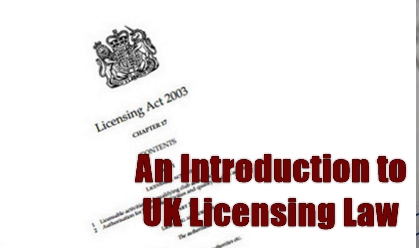All businesses that serve alcohol to its customers must have a licence and there are licensing laws that cover this in England & Wales, Scotland and Northern Ireland.
This guide will deal primarily with the regime in England and Wales, having only run pubs under the English and Welsh framework, readers in Scotland and Northern Ireland should check with their respective licensing authorities, although the law in all three areas is substantially the same.
The current legislation is contained within the Licensing Act 2003, which came into force in 2005 and it pulls together six pieces of previous legislation into one unifying law.
The main feature of the Licensing Act 2003 is the 4 Licensing Objectives:
1.the prevention of crime and disorder
2.public safety
3.the prevention of public nuisance
4.the protection of children from harm
All you do as a licence holder and your business does as a business selling alcohol and what your staff must do to satisfy these objectives are contained in the law.
Premises deemed to be a problem with respect to the four licensing objectives can have their premises licence reviewed with the result that the licence is revoked or restrictions placed upon the premises such as reduction of opening hours or activities (such as live music), the removal of the Designated Premises Supervisor from the licence.
The local police can apply to the courts for closure orders on premises in specific areas where disorder is occurring or is anticipated. The police can also close premises and call for a review of the licence.
The main requirements of the act are:
- all premises undertaking licensable activities (e.g. sale of alcohol) must have a premises licence
- each premises licence must have a designated premises supervisor (DPS)
- a personal licence must be held to authorise the sale of alcohol
Under the old system there was merely a “Justices Licence” that was specific to a public house and the licensee (pub landlord) held the licence for that pub.
Children in Pubs
The 2003 act also contains regulations regarding:
- children in pubs
- entertainment
- opening hours
- licence applications
Under the 2003 act responsibility for licensing passed from the magistrates’ courts to local councils who are known as the Licensing Authority (LA). Where your pub is located will dictate which LA is responsible for its licensing and it is from them you will get all the necessary forms and guidance notes, along with a copy of the code of practice and their licensing policy. Your local council’s website will have all this information.
Whilst one can apply for a premises or personal licence oneself I believe it is best left to a specialist licensing solicitor deal with this to ensure that the application is correctly submitted and give advice on any problems that may arise from the application.
